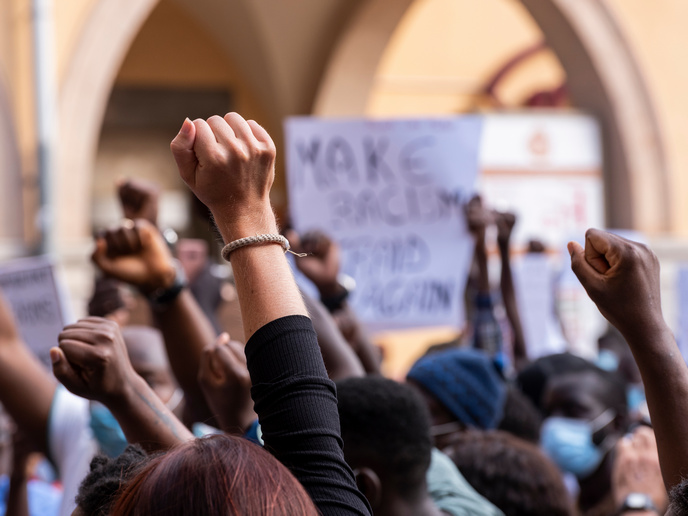The multifaceted interrelationship between protest and democratic order
In times of cataclysmic social transformation, a continuous updating of our interpretation tools regarding political expression is imperative. The ERC-funded POWDER project investigated the interplay of democracy and protest. More specifically, the researchers assessed whether contemporary protest movements influence the premises of democracy, and whether the democratic order gives rise to specific forms of protest. POWDER was divided into an overarching ‘Theoretical Framework Project’ and the following empirical sub-projects: ‘Digital Protest Movements’, ‘No-border and refugee protest’ and ‘Rightwing Identitarian Protest’.
Deciphering the meaning and the function of protest today
The ‘Theoretical Framework Project’ focused on interpreting the meaning and function of political protest in modern democracies and developed normative criteria for assessing its democratic quality. “It is important to understand how protest influences the way people perceive the democratic order and whether they can feel part of it or not,” explains principal investigator Christian Volk. Crucial here is the distinction between reformist protest – that expresses dissatisfaction, criticises and raises awareness on neglected issues, and pushes policymakers to meet its demands – and transformative protest – that initiates discourses of legitimacy about the structure of the democratic order and its specific modes of exercising power. Transformative protest, in turn, can be distinguished into emancipatory and non-emancipatory based on the political interaction that exists within protest collectives, between political opponents and the public. This distinction is highlighted, for example, in the case of certain environmental movements as a threat to democratic order. “Protests in the face of the climate crisis have mobilised the concept of civil disobedience for their actions. New actors such as ‘The Last Generation’ perform politically motivated violations of basic rules of the democratic order as a means for democratic emancipatory struggles,” clarifies Volk.
The mechanics of protest in contemporary democracies
‘Digital Protest Movements’ focused on the ways digital activists seek to politicise issues of political participation, democratic decision-making and transparency through the design of digital technologies. “What emerges out of this research is a strategy of productive protest, when combined with a public critique of the power relations that emerge through the digital transformation of modern democracies,” explains research fellow Daniel Staemmler. ‘No-border and refugee protest’ unravelled the mechanisms through which protest and border struggles challenge and contest common presuppositions about the execution of democracy. “By claiming that questions of belonging and equal rights should not be structured through citizenship, the protests by irregularised migrants publicly articulate dissident interpretations of fundamental principles of democratic orders,” points out research fellow Laura Gorriahn. ‘Rightwing Identitarian Protest’ examined how contemporary grassroots right-wing movements organise their protest in the name of democracy. By claiming to defend free speech and represent the people, they structure their framing mechanisms around an ideology of exclusion. “In demanding the fallacious return to a homogenous people, they assault basic principles of democratic ordering,” notes research fellow Danniel Gobbi. “Our research perspective has proven to be an advanced tool for understanding contemporary developments within democratic societies,” states Volk. “It seems important to us to continue disseminating these findings in the media and the political public sphere to help avoid premature devaluations of protest.” The team is currently in the process of preparing several co-authored papers for this aim.
Keywords
POWDER, democratic order, protest movement, political protest, power relations, democratic theory







